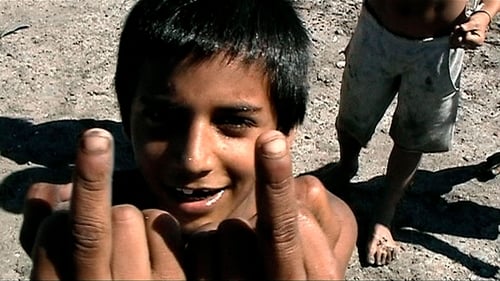
Original Music Composer
The history of the Argentine railways, from 1857 until the crisis of the current transport system. The closing of branches of the railway lines turned towns whose main source of work was the train into ghost towns. The privatization of the lines caused the dismissal of tens of thousands of workers as well as the deterioration of public service, causing in turn the increase of motor transport and the multiplication of automobile accidents.

Original Music Composer
As the third installment in an ongoing series of muckraking documentaries by Argentine filmmaker Fernando Solanas that investigate various sociological aspects of South America's second-largest nation (following 2004's Memoria del saqueo and 2005's La Dignidad de los nadies), Latent Argentina springboards from a truth little-known to most of the titular country's residents: Argentina owns more wealth and more innate natural resources than almost any nation on its continent. The possessor of a bountiful shoreline, endless acres of tillable farmland, the fourth largest metal reserves on the planet and a remarkable space program (the fourth in the world to send a human being into space), Argentina nevertheless remains a prisoner of backward and disadvantageous economical, political and social systems.

Original Music Composer
The degraded socio-economic condition of Argentina leading to the December 2001 rebellions, and its consequent social chaos analyzed by focusing on real people from Buenos Aires poorest shantytowns, crumbling hospitals, and women middle class farmers fighting multi national banks that are shamelessly appropriating their farmlands. Written by Gonz30

Original Music Composer
(1968)로 세계 다큐멘터리사에 한획을 그었던 페르난도 솔라나스의 최근작. 영화는 경제공황으로 최악의 상황에 몰린 아르헨티나의 현실을 되짚는다. 2001년 10월에 있었던 아르헨티나 시민들의 시위장면을 보여주면서 영화를 시작한 페르난도 솔라나스는 질문한다. “도대체 아르헨티나에 무슨 일이 있었던 걸까?” 은 요즘 유행하고 있는 마이클 무어식의 다큐멘터리와는 거리가 있다. 이 영화가 선택한 방식은 질문에 철저히 구조적으로 대답해보는 것이다. 각각 “끝없는 빚더미, 경제 모델, 민영화” 등 토픽에 따라 10개의 챕터로 나눠져 있으며, 그 맥락을 따라 아르헨티나의 경제가 무너져온 이유들을 영화는 꼼꼼히 따져본다. 1970년대부터 2000년대를 오가며 아르헨티나를 망친 요인들을 하나씩 파헤쳐본다. 그 중심에는 장기집권의 시대를 연 대통령 카를로스 메넴이 있으며, 부정부패의 무리들이 있다. 영화는 그저 이들의 행태를 비판만 하기보다는 끊임없이 현재의 관계 안에서 인과성을 찾아내려 노력한다. 페르난도 솔라나스는 휘황찬란하게 치장된 공관 내부와 암울했던 지난 역사 자료들을 병치시키며 웅장한 대조의 설득력을 발휘한다. 시종일관 의도와 기법이 조화를 이루고 있는 은 아르헨티나에 관한 사회학적 보고서인 동시에 근래 보기 드문 전통적 다큐멘터리 양식의 교본이다.

Original Music Composer
A retiree who is thrown out of the lodging where he lives with a closet, his only belonging, meets a girl from the street and will keep each other company

Original Music Composer
A black cloud brings 1600 days of rain to Buenos Aires, while traffic and pedestrians move backwards. Aging actor Max (Eduardo Pavlovsky) runs the Mirror Theater in a former fish market, but lack of funding means a possible demolition. Max is attracted to Brazilian dancer Fulo (Angela Correa), who worries about her daughter back home. Amid political corruption and police brutality, Max's elderly colleague Enrique leads a protest for unpaid old-age pensions. The pensioners succeed in their demands, only to learn from a government official that no money is available to pay them.





